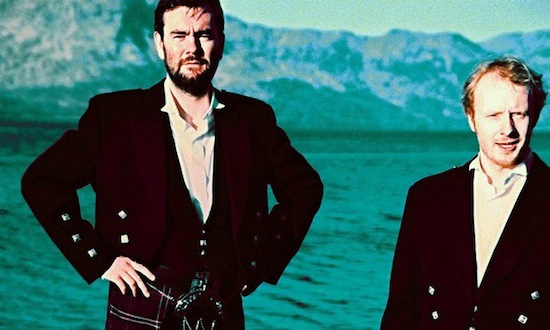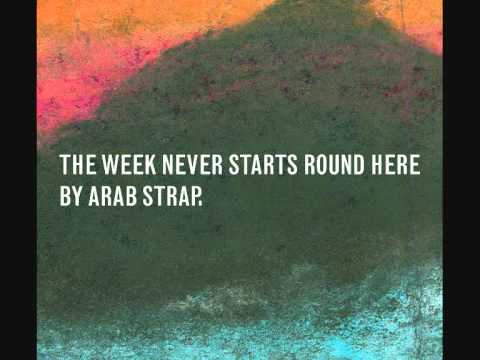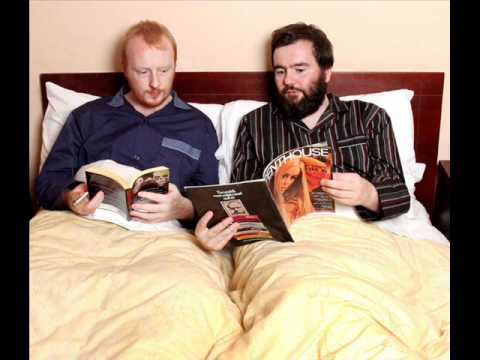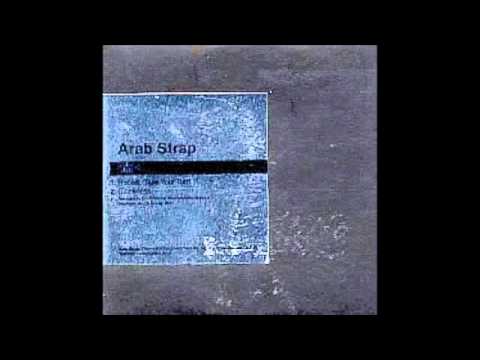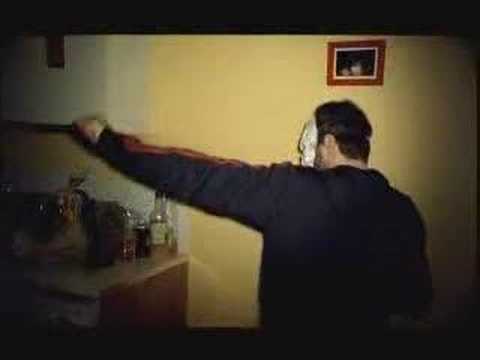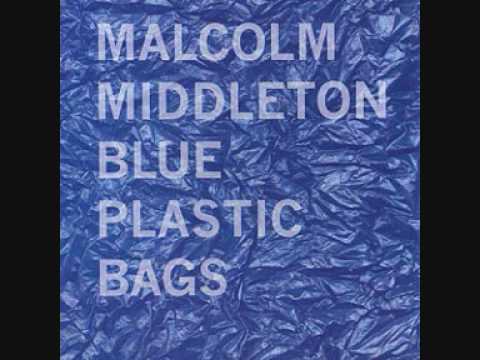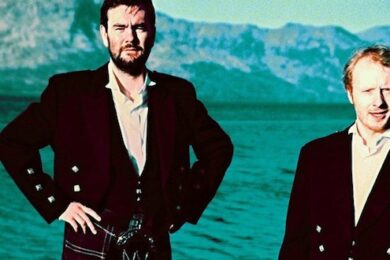According to the legend of Hallmark, a 20-year anniversary calls for presents of platinum, or china. Or, if you’re cult-pop bon vivants Arab Strap – aka Aidan Moffat and Malcolm Middleton – you mark your two-decade on-off tryst by becoming the gift that keeps on giving.
In addition to previously announced reunion shows in Glasgow, Manchester and London, news reaches the Quietus of another gig: Arab Strap will play a special warm up show at Newcastle Cluny on October 12. Tickets go on-sale on Friday September 23 at 9am.
The Falkirk duo have also announced supports for their upcoming tour, in the shape of Glasgow R&B pop livewires Bossy Love (featuring bygone members of Dananananaykroyd and Operator Please) – who’ll join them on all UK dates – and Edinburgh psychedelic krautrock wunderkinds Man of Moon, who’ll play at the Glasgow Barrowland shows.
To celebrate their forthcoming gigs and a new compilation, 20 Songs For 20 Years we spoke to Middleton and Moffat about the 10 Arab Strap (and solo) songs of which they’re most proud, or fond – amid talk about storytelling, tension, recording in Moffat’s teenage bedroom, booze in the studio (perish the thought), and sexism, drugs and rock & roll…
‘Blood (Live)’ (from Ten Years Of Tears (2006)
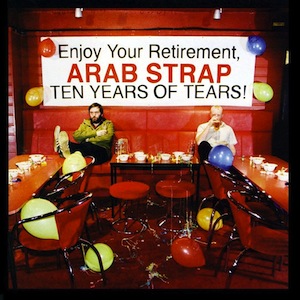
Aidan Moffat: Recorded somewhere in Europe on tour, this is a previously unreleased full-band, updated version of an acoustic song from our first album. People would always ask me if I’d ever got into trouble because of any Arab Strap songs. ‘Blood’ is the one. That caused me so much hassle. And I’m deeply protective of it. The girl the song’s about, there was a very complicated situation with her, where – this is going to sound kind of creepy, it’s not as creepy as it sounds – I ended up going out with her sister. And then there was a bit in [Scottish tabloid] The Sunday Mail about it.
In an early review, I was called all the sexists of the day, because of the angle of that song, specifically the bit where I refer to an ex as a ‘fickle disco tart’ – which, in itself, I actually think is a pretty good insult. Phonetically, it’s excellent. But I don’t think there’s a sexist hair on my head. You’d have to ask somebody else of course. And the thing is as well: I’m always the arsehole in the songs. It’s very self effacing. People didn’t always seem to understand that, especially at the start. But I knew what I wanted to do with that song, which is what I always wanted to do…
Love songs were always a big part of my life when I was young. But if you grow up with that, it gives you a pretty skewed and unrealistic idea of what to expect. So what I always wanted to do when I started Arab Strap – and this wasn’t clear to me at the time; I can articulate these thoughts now much better than when I was young of course – was that I wanted to write love songs that were real. And that said things people actually said in real life. And not to poeticise the feelings and emotions too much.
Ironically for a song that got me into trouble for being sexist, ‘Blood’ was inspired by women. Like the rage of Babes in Toyland – I used to love that. There’s a Babes in Toyland song called ‘Handsome And Gretel’, and I’d never heard language like that in a song before. Outrageous. So it was that sort of thing – that rage, that nastiness – that I wanted to retain. Because people do say horrible things, especially when they’re angry.
I chose the newer version of ‘Blood’ because I think it’s a much better song now. When you make your first record, you’re not very sure what you’re doing. You’re just sort of flailing about in the dark. But that song stayed with us, and I think people understand it now more than they did then. I think Philophobia [1998] was when people realised what I was trying to do with that sort of doomed realism in love songs. I think it became more apparent later. It wasn’t quite evident on the first album [The Week Never Starts Round Here]. And that first record’s got ‘The First Big Weekend’ on it, which it just throws it all out of kilter, because that song was never meant to be on the album.
The whole thing was finished, and the idea was to do a sort of one-off single first, just to test the water, and that was ‘The First Big Weekend’. It’s that age-old story of the shite song that was going to get fucked onto a b-side. We wrote it and recorded it in one day, and thought no-one would really give a fuck. Next thing you know, it seemed to be on Radio 1 quite a lot.
‘Deeper’ (from The Week Never Starts Round Here, 1996)
Malcolm Middleton: We recorded a demo tape on a four-track, and this was on it. It was ‘Deeper’, ‘The Clearing’, and ‘I Work In A Saloon’, I think. We sent it to Chemikal Underground and Domino. When we came to re-record it for The Week Never Starts Round Here, it was one of the songs we weren’t bothered about improving. We wanted to recreate the demo version.
The music’s fine, but the main thing I like about ‘Deeper’, what I like about Aidan’s stuff, is the storytelling. He has this way of keeping the tension going. Certain bands that have storytelling in the songs, but some of them don’t have much space for re-listening, and repetition – once you’ve heard the story, that’s the story, you know what it is, and that’s the end of it.
With Aidan’s stories, early stuff like ‘Deeper’ or maybe ‘New Birds’ or ‘One Day After School’, the thing is that all the details aren’t there. He’s telling a story, but he’s keeping the tension. And you’re sitting on the edge of your seat, listening to what’s going to happen next, and you can listen time and time again – even when you know there’s maybe not a punchline or some kind of moral at the end. It’s like ambient storytelling or something.
‘The Clearing’ (from The Week Never Starts Round Here, 1996)
MM: When me and Aidan were messing around doing those demos in 1995, this was the first song where I thought – there’s something special about this. We were both in different bands at the time, Arab Strap was something we were doing together as a bit of a joke, but something happened.
‘The Clearing’ was done really quickly. Like the album version, the demo was a drum machine, a guitar and another guitar, some feedback and then Aidan creating some weird poetic picture with the words, like most of the stuff he does. I can still listen to that song and not be sick of it, especially the last two minutes. It’s got something end-of-the-world about it. It’s quite desolate, but also hopeful.
We borrowed Stuart The Postman’s four-track to make these demos. I remember us doing this song and ‘Deeper’ in Aidan’s bedroom – he had a drum machine, I used to go round there in the evenings – Summer and Autumn, ’95. The following year I went to work in a bar in Mull, and that’s when Aidan sent the demos off. Chemikal got back to us, and the rest is history.
I’m not sure what we’d have done if we couldn’t record those demos on Stuart The Postman’s four-track. He’s not a postman any more. I hear he’s re-trained as a forester.
‘I Would’ve Liked Me A Lot Last Night’ (from Philophobia, 1998)
MM: I love this song, because although I’m more often credited as having done most musical things, with Aidan doing the words, it wasn’t as clearly split as that. Aidan had quite a lot of musical input. Especially on the production side. There’s a handful of songs, and this is one of them, where he wrote the song, with the words going across it. He came up with the piano part. I basically filled it out in the background. It’s always been a bit trickier to play, because a bit more unusual for me. It’s not one something I would have done naturally.
So I like it for that reason, as a song, but I also have these really dark and vague memories of recording in Chem19 in Hamilton, in the winter of ’97. We seemed to be hungover a lot. We had this thing, we were never drunk in the studio – there was always a line between socialising and working and recording – but for this song, I remember, everything and everyone was feeling a bit fuzzy, and I think the mood of the song captures it all. It’s a hangover piece, but there’s a real sway to it.
It’s Aidan ripping himself to bits, isn’t it? You can tell – well, most people can tell – that he’s got a smile on his face when he’s singing those words. And the drums as well. I think we had one of those cabaret keyboards at the time, and he set it to the preset for soul. Aidan’s a massive soul fan, so he wanted the preset for soul. Most of the drums from back then were presets, come to think of it.
‘Rocket, Take Your Turn’ (from the Fukd I.D. #2 12”, 2000, 2006)
AM: I don’t understand the decisions that happen. I just don’t know why this wasn’t on The Red Thread any more. It’s probably the best song we recorded in that period. But for some reason, we thought we’d just assign it to a limited edition 12 inch single. It’s one of those bizarre, self-destructive Arab Strap ideas we used to have quite a lot. It’s indicative of a lot of bad decisions we seem to have made in the past. [Laughs]
I think this song’s the first time we got the balance right between dance music and guitar music, and it came together as well as I hoped it would. It was also the first time we used a real 808 drum machine, but it was broken. The b-side’s called ‘Blackness’. That sounds like where Arab Strap would live.
I could tell you who ‘Rocket’s about, but I don’t want to get anyone into any trouble. There’s people you’d know and recognise in that story. And it’s such a good memory as well. There’s a line in it – ‘keep climbing and you’ll see everything’ – and that’s because we were out our minds on drugs in a park and we were up one of those big climbing frames, just observing the Glasgow scenes, and you really do feel like you’re on top of the world.
I’ve always been proud of the last line as well – ‘everyone takes turns at being a dick’. That’s an Arab Strap motto for our whole output. The Arab Strap manifesto, aye. I think that’s probably point two.
‘We Know Where You Live’ (b-side to ‘Love Detective’, 2001)
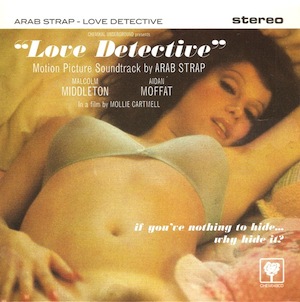
AM: This is gong to be on the new compilation. It’s one of these songs I’ve always wanted to do something more with. It’s a pretty loud one, it has a build up and a noisy section, but I think at the time, I was aware of us doing too many rock records because a lot of people were doing rock records. Mogwai were doing so well back then too, and I kind of felt there was enough people doing the quiet / loud dynamic thing. But the other side of that was we lost a few songs that I really enjoyed.
I think ‘We Know Where You Live’ is a good example of what we did with the rockier stuff. And also, I’m quite impressed with my drumming on it. [Laughs] I haven’t played the drums in years. I couldn’t do that any more. I think a lot of people still don’t realise that Arab Strap really was literally Malcolm and me in the studio. Occasionally other people would play other parts, but in the studio, all the guitars, drums – that was us.
Maybe I don’t really want to burst the bubble of the idea that I just sort of wandered into the studio pissed, mumbled over Malcolm’s beautiful music, and then we had a fight and I went back to the pub, but Arab Strap in the studio were the two of us doing everything we possibly could. And there was hardly ever any drink. It was always a very sober atmosphere. Because we’re quite tight, naturally, and time is money. I’ve never understood bands turning up to a studio with a carry out. Waste of fucking time.
If people want to believe I was pissed the whole time, fine. But the reality was, we were in the studio, sober, working hard.
‘Glue’ (from Monday At The Hug And Pint, 2003)
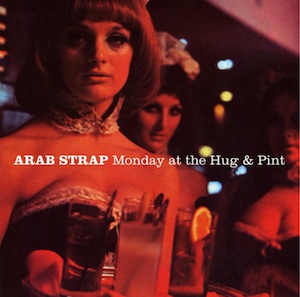
MM: I’ve always had an affection for this song, and for the way it was recorded. It was around the time that Big Brother started. We were quite bored in the studio one day, and we weren’t really feeling very motivated, so Aidan was like – right, we’ve got four hours left in the day, so let’s just give ourselves a task. That was the Big Brother element. And our task was to write and record and finish a song in these four hours. It was good fun. Usually, we’d come in prepared – we’d have some words or some guitar – but this was just making stuff up, laying down the sounds, and finishing it, all in that set time.
There’s a lot of depth to it I think, although it wasn’t till years later that I really appreciated Aidan’s words in the song. Then I was like – fuck, this is really heavy. I think sometimes, at the time, I could be a bit immature with Aidan’s lyrics. Like, I’d be disappointed if there wasn’t a big gag factor – I mean as in jokes! – or if there wasn’t some kind of punchline. But it’s the ones that seep in, the ones you don’t necessarily listen to so much at the time, that stay with you.
When you treat things lightly, something comes through in them, and when you’re trying too hard to make something sound a certain way, it doesn’t always work. This is one of the songs I can still listen to with fresh ears, because I don’t know the parts, because they weren’t pre-planned. They weren’t written in advance. I still hear all the little mistakes that were left in, and little quirky bits. That’s cool. It’s one of my favourites.
‘The Shy Retirer’ (from Monday At The Hug And Pint, 2003)
AM: I’ve always thought this was probably our best song. I think it’s quite an interesting contrast to ‘The First Big Weekend’, because that was about going out and celebrating the fact that you’re young and you can do whatever you want, that’s it. And then a few years later, it’s pretty much the same – it’s the same vibe, the same substances – but by that point I’m getting a bit more philosophical about things. [Laughs] So it’s kind of a mature, aged version of the disco song that we always tried to make.
But obviously it’s still about going out though. Someone once sent me a science tweet, because they said I’d got the science wrong. They said instead of ‘serotonin’, I should have said ‘endorphins’, because love doesn’t create serotonin, it creates endorphins. So I pointed out that I was actually talking about ecstasy. And then they went – okay, fair enough, you’re absolutely right.
So ‘The First Big Weekend’ was a celebration of going out, but ‘The Shy Retirer’ is about that imbalance of the love you feel chemically and the love you feel emotionally, which never quite join. It was my warped way of doing a fairly upbeat disco song that you could dance to and still discuss the deep schism between chemical and emotional love.
I mean don’t get me wrong, I don’t want to sound like one of those idiots who goes on about My Drug Hell and all that – I had a fucking brilliant time. But it can be quite a shallow thing too. There’s all this ostensible affection for the people around you, but then you still go home feeling fucking lonely.
Bills Wells And Aidan Moffat – ‘Dinner Time’ (from Everything’s Getting Older, 2011)
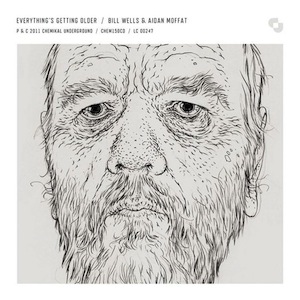
MM: I remember Aidan and Bill played the Tolbooth in Stirling. It was before the first album came out, and I think that’s when I first ever heard them. It was quite stripped back, Aidan was playing drums and singing at the same time, like Phil Collins, and he was doing this atmospheric cymbal stuff with the song. It’s like I was saying about ‘Deeper’: you’ve no idea what’s coming next, and he’s giving you the materials to paint your own picture, and then you’re faced with the punchline at the end, where it’s not what you’re thinking, or it’s not going where you think it was.
It’s probably just about him going home and his mum asking what he wants for dinner – although it might not be his mum of course, I’m not sure about that. But the thing is, when I hear that song, I always picture his old house. I can see him going up the stairs, there’s this hazy kind of Tales Of The Unexpected mist that fills the place, and I’m looking through young Aidan’s eyes. Is it his mum? Is it not? Who’s the woman? It’s always stuck with me.
I don’t want to start gushing about him, but I think what’s good about Aidan is that he’s not a traditional musician – he doesn’t play a musical instrument – but when he sits down with me or Bill or whoever, he’s not just a vapid singer with some words. He’s got an idea in his head about what the style should be, he’ll say – no, it’s got to be like this – and he’ll play a few things, and he’ll pick out the ones that he thinks would work. He’s got a lot of musical ideas, it’s never throwaway. It’s a really good record. But obviously, the guitars were shit.
Malcolm Middleton – ‘Blue Plastic Bags’ (from Sleight Of Heart, 2008)
AM: I would have chosen a different song, but I can’t find it. When Malcolm and I first met, before we recorded anything together, we used to swap tapes of stuff we’d done on our own. So there’s a thing you can find online, The Angry Buddhists – that was me fucking about. And Malcolm used to give me tapes of his music. There was a lot of great stuff on there. A few years ago, when cassettes were really cool, I wanted to start a cassette label, and for my first release, I begged Malcolm to let me release some of the tapes he’d given me when we were young. And he agreed. I couldn’t believe it. Unfortunately, when I went to go and look for them, I couldn’t fucking find them. I don’t know where any of them are. I’ve put them somewhere so safe that I can’t find them, ever again.
He used to do covers quite a lot. He did a pretty hilarious version of Oasis’ ‘Wonderwall’, I think he recorded it the week the Oasis version came out. But he couldn’t sing it. So he called it ‘Caterwaul’. It was fucking hilarious. I’ve been trying to remember the name he used on all his tapes, and I’ve just remembered it. Typical Malcolm name. Absolutely Malcolm. He called himself The Laughing Stock. He’s going to fucking kill me when he reads this.
Anyway, I loved these tapes, and I would have included something from them if I could. He recorded straight to a Dictaphone, and there’s something great about the intimacy of that, that you lose when you start to get a bit more professional. And of course, he sang on the first Arab Strap record too. The idea of Arab Strap originally was that we would share vocals and we would share songs, I don’t know why it didn’t work out that way. But his own solo stuff has also all been pretty brilliant.
I don’t know what it is about ‘Blue Plastic Bags’. I just think it sums up Malcolm and what he does well. It’s the details. He’s good at wee details. The way it’s rooted in that one detail that people relate to right away. And musically too, it’s got such a catchy tune, and an almost euphoric refrain at the end, but in typical Malcolm style, it’s just slightly too slow to be joyous. He has these big rousing choruses, but they’re never quite upbeat enough to be hands-in-the-air – and that’s why it works. Seeing him do that one live as well, folk love that song. You feel a wee shift in energy in the room when he starts to play it.
It’s that thing of finding something that ostensibly finding something that feels very personal, but of course it has a very universal appeal, and I think that’s something he’s always done in his songs – after his band Rabid Lettuce, of course, which was a different thing entirely. Rabid Lettuce were this really noisy band. Malcolm played the bass, with the fuzz turned up to fucking whatever. They had this song called ‘Rip Your Face Off With A Fridge’.
There’s actually footage of a Rabid Lettuce concert somewhere. At this point, I had a video camera. I always wanted to be a film-maker. So I got a video camera, followed them round at the rehearsal, and went to the gig. I got so fucking drunk I ended up underneath one of the tables at the front of the stage. Someone else had the camera. I found the spare mic, so I just picked it up and joined in – and that was, technically, the first time Malcolm and I performed together. Early ’90s I think.
I don’t think we were out of high school, or not by much. It was before Malcolm and I knew each other very well. We were friends of friends back then. I remember being in a club one night around that time, and I was getting off with this girl. I thought it was going really well, and she went – I’m just going to go and get you a drink. So I was like – Oh, brilliant! I sat I my chair. She went to the bar. And she took quite a bit of a time. Eventually, I went to get up and go and look for her. And I saw her leaving with Malcolm.
20 Songs for 20 Years is out on September 30 via Chemikal Underground
Arab Strap play the following dates in October:
12 – Newcastle, Cluny (tickets on sale Friday September 23 at 9am)
13 – London, Electric Brixton (sold out)
14 – Manchester, Ritz (tickets available at time of writing)
15 – Glasgow, Barrowland (sold out)
16 – Glasgow, Barrowland (tickets available at time of writing)

